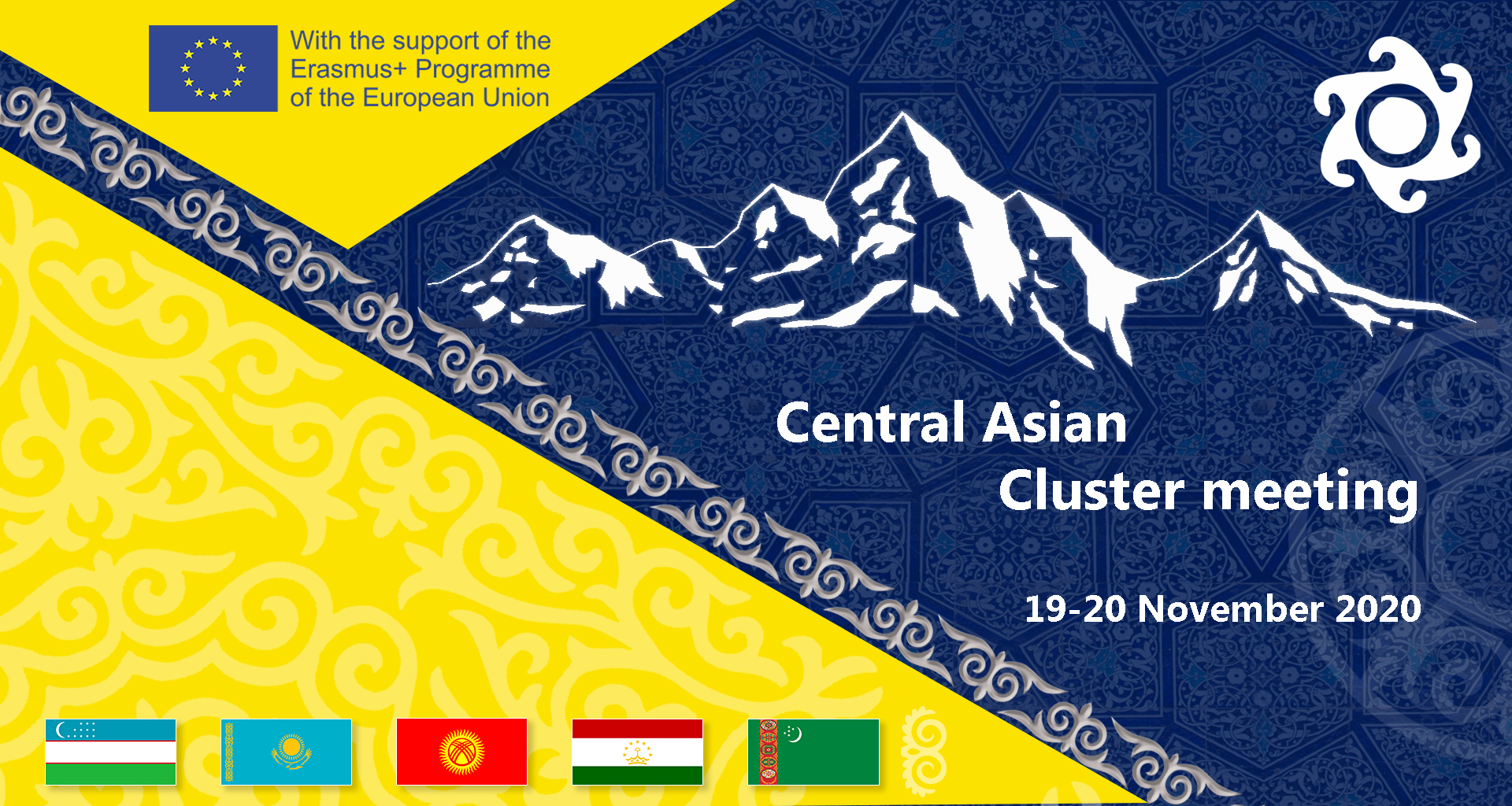The on-line Cluster Meeting is being organised jointly by EACEA, EAC and the NEO Uzbekistan in the framework of the CBHE action of the Erasmus + programme. It will bring together project coordinators and local CBHE project team members (national coordinators) and other stakeholders from the Higher Education sector from Kazakhstan, Uzbekistan, Tajikistan, Kyrgyzstan and Turkmenistan as well ICM in order to:
• Discuss the EU funded projects/programmes impact on the CA HE sector in terms of modernisation, accessibility, mobility, employability, internationalisation and reform of HE;
• Facilitate exchange of good practices and project challenges encountered, reflect on the actual needs of the HE sector in CA and on the way the future EU education programme for 2021-2027 could address these needs;
• Discussion on challenges and coping strategies in project management and implementation during the COVID-19 pandemic confinement period;
• Promote networking and provide local/regional visibility to the E+ programme and its funded projects, thereby contributing to maximising their impact;
The objective of the cluster meeting is to determine the impact and sustainability of project results in the different CA countries and on a regional level. The Regional Cluster Meeting will also constitute an opportunity to stimulate the analysis and debate on the current Erasmus+ programme and use this to nurture the future EU education programme.
The cluster meeting will consist of a two days that includes plenary sessions and a series of five interactive discussion groups facilitated by EACEA, DG EAC and the Central Asian NEOs. The topics for discussion such as quality, accessibility and internationalisation as well as impact on the higher education systems and the promotion of reforms, will be followed by a debate on modernisation, curriculum reform and the Bologna Process, regional cooperation and university and business cooperation. In addition, the participants will have an opportunity to discuss the challenges faced in project management during the COVID-19 pandemic period and share different strategies adopted.
The European Union funded Erasmus+ programme supports the reform in higher education systems through funding the joint projects between the European and higher education institutions of the partner-countries worldwide including Central Asia.
